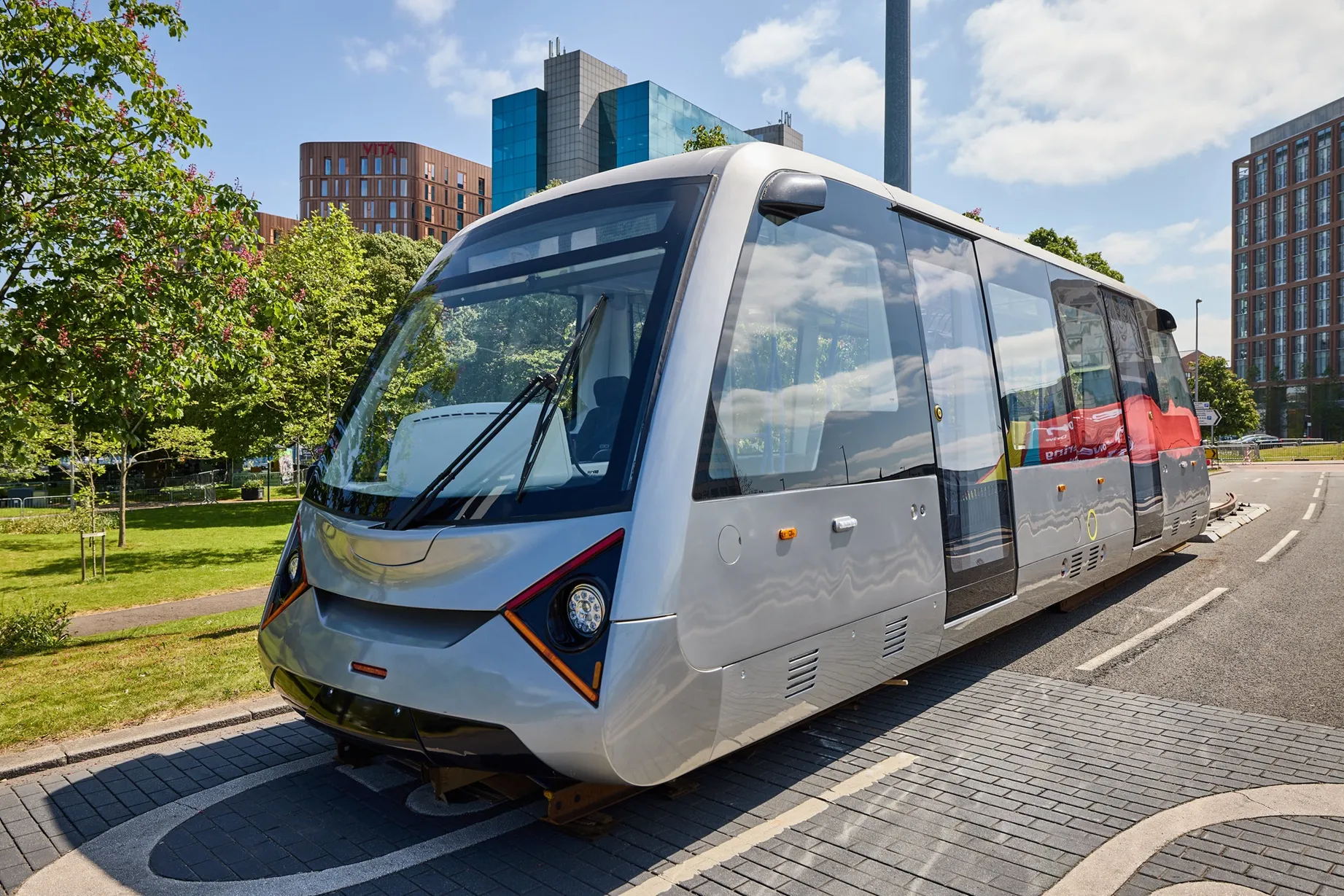An Arup-led consortium, UK Autodrive, has won the UK Government’s US$15.6 million ‘Introducing Driverless Cars’ competition. Other members of the consortium are Milton Keynes Council, Coventry Council, Jaguar Land Rover, Ford Motor Company, Tata Motors European Technical Centre, RDM Group, MIRA, Oxbotica, AXA, international law firm Wragge Lawrence Graham & Co, the Transport Systems Catapult, the University of Oxford, University of Cambridge, and the Open University.
The aim of the project is to establis
December 9, 2014
Read time: 3 mins
An 7942 Arup-led consortium, UK Autodrive, has won the UK Government’s US$15.6 million ‘Introducing Driverless Cars’ competition. Other members of the consortium are Milton Keynes Council, Coventry Council, 3883 Jaguar Land Rover, 278 Ford Motor Company, Tata Motors European Technical Centre, RDM Group, 4310 MIRA, Oxbotica, AXA, international law firm Wragge Lawrence Graham & Co, the 7800 Transport Systems Catapult, the University of Oxford, University of Cambridge, and the Open University.
The aim of the project is to establish the UK as a global hub for the development of autonomous vehicle technologies and to integrate driverless vehicles into existing urban environments by trialling them in two major UK cities. Not only will the programme help develop the new protocols and connected infrastructure required to deliver future autonomous mobility, it will allow the UK Autodrive team to test public reaction to both driverless cars and self-driving pods.
The funding provided by Innovate UK will be matched by the 12 consortium members to create a US$30 million three year project which will be led by Arup. UK Autodrive will deliver a programme of feasibility studies and practical demonstrations in Milton Keynes and Coventry, where the city councils are taking the lead in developing the urban infrastructure technologies required to support driverless mobility.
The feasibility studies will consider the significant implications and challenges of introducing autonomous vehicles from a technical, social and economic perspective. The studies will provide insights for vehicle manufacturers, cities, commercial operators, legislators and insurers to develop the legal framework for the roll-out of autonomous mobility.
On-road testing will include the real-world evaluation of passenger cars with increasing levels of autonomy, as well as the development and evaluation of lightweight fully autonomous self-driving pods designed for pedestrianised spaces.
“The UK Autodrive consortium brings together world-class expertise that will help the UK position itself as a leader in the development and adoption of autonomous driving technologies,” commented Tim Armitage, UK Autodrive project director, Arup. “As well as developing and testing the in-car, car-to-car and car-to-infrastructure technologies that will be required to drive cars autonomously on our roads in the future, the project will also place great emphasis on the role and perceptions of drivers, pedestrians and other road users.”
“The UK is a world-leader in the development of driverless technology, and today’s announcement will see driverless cars take to city streets from 1 January,” said UK Business Secretary, Vince Cable. “This not only puts us at the forefront of this transformational technology but it also opens up new opportunities for our economy and society.”
The aim of the project is to establish the UK as a global hub for the development of autonomous vehicle technologies and to integrate driverless vehicles into existing urban environments by trialling them in two major UK cities. Not only will the programme help develop the new protocols and connected infrastructure required to deliver future autonomous mobility, it will allow the UK Autodrive team to test public reaction to both driverless cars and self-driving pods.
The funding provided by Innovate UK will be matched by the 12 consortium members to create a US$30 million three year project which will be led by Arup. UK Autodrive will deliver a programme of feasibility studies and practical demonstrations in Milton Keynes and Coventry, where the city councils are taking the lead in developing the urban infrastructure technologies required to support driverless mobility.
The feasibility studies will consider the significant implications and challenges of introducing autonomous vehicles from a technical, social and economic perspective. The studies will provide insights for vehicle manufacturers, cities, commercial operators, legislators and insurers to develop the legal framework for the roll-out of autonomous mobility.
On-road testing will include the real-world evaluation of passenger cars with increasing levels of autonomy, as well as the development and evaluation of lightweight fully autonomous self-driving pods designed for pedestrianised spaces.
“The UK Autodrive consortium brings together world-class expertise that will help the UK position itself as a leader in the development and adoption of autonomous driving technologies,” commented Tim Armitage, UK Autodrive project director, Arup. “As well as developing and testing the in-car, car-to-car and car-to-infrastructure technologies that will be required to drive cars autonomously on our roads in the future, the project will also place great emphasis on the role and perceptions of drivers, pedestrians and other road users.”
“The UK is a world-leader in the development of driverless technology, and today’s announcement will see driverless cars take to city streets from 1 January,” said UK Business Secretary, Vince Cable. “This not only puts us at the forefront of this transformational technology but it also opens up new opportunities for our economy and society.”









